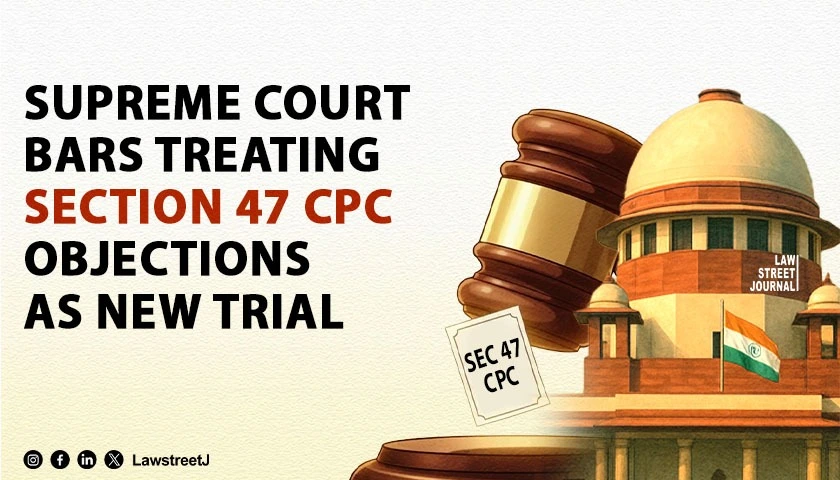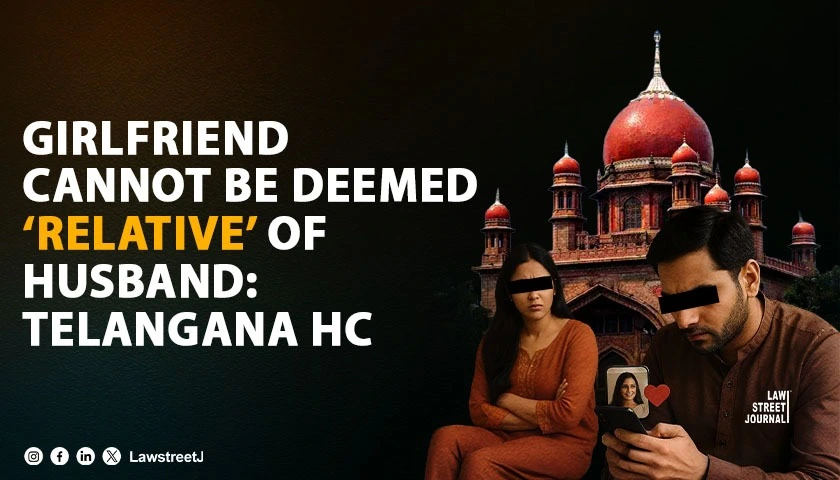New Delhi: The Supreme Court has held that objection petitions filed under Section 47 of the Civil Procedure Code, 1908 (CPC) should not invariably be treated as the commencement of a new trial. The Court emphasized that the jurisdiction under this provision is limited and intended to prevent abuse of process.
The Division Bench of Justice Sanjay Kumar and Justice K.V. Viswanathan observed that the object of Section 47 CPC is to prevent unwarranted litigation and dispose of objections expeditiously. The Court cautioned against the increasing trend of proceedings resembling a retrial, which obstructs the realization of the fruits of a decree. Unless prima facie grounds exist, entertaining objections under Section 47 would amount to abuse of process.
The Bench reiterated that the executing court must not go beyond the decree. However, the Court noted a rising practice of filing frivolous objections at the execution stage, depriving decree-holders of the benefits of litigation while judgment-debtors misuse legal process to retain possession of what they are not entitled to.
The Delhi High Court, by judgment dated May 9, 2025, had dismissed objections under Section 47 and an application under Order XXI Rule 29 seeking stay of execution, holding that such objections were not maintainable as they would effectively open a second round of challenge to the award and undermine the Arbitration and Conciliation Act, 1996.
On maintainability, the Supreme Court referred to Electrosteel Steel Limited vs. ISPAT Carrier Private Limited, where it was held that a plea of nullity against an arbitral award may be raised under Section 47 CPC, but only on limited grounds. At the execution stage, objections to executability can be raised only on jurisdictional infirmity or voidness — not on alleged legal or factual errors.
In the present case, the Court held that the objections did not concern inherent lack of jurisdiction. The objections alleging fraud and conspiracy by MMTC officials in fixing coal prices in collusion with Anglo did not establish grounds rendering the award void or inexecutable.
Discussing fiduciary duty standards, the Court emphasized that directors’ decisions must be judged on what reasonably competent directors could have done at the time, not with hindsight. A director does not guarantee success; business decisions taken honestly and reasonably fall within the “business judgment rule.” Courts should not substitute their views for bona fide managerial decisions unless no reasonable director could have taken such decisions.
Applying these principles, the Court examined undisputed facts relating to the Long-Term Agreement of March 7, 2007, the Memorandum of Understanding dated January 30, 2007, and the Empowered Joint Committee’s approval of coal pricing on May 8–9, 2008, prior to the Lehman collapse. The Court noted that MMTC had itself purchased coal from BHP Billiton Mitsubishi Alliance at comparable prices, and there was no convincing explanation for the allegation of collusive conduct.
The Court rejected arguments based on the FIR and allegations against MMTC’s former managing director, observing that the Section 37 proceedings were successfully prosecuted during his tenure.
Holding that no material established that MMTC’s officials acted irrationally or outside the range of reasonable commercial judgment, the Court held that the business-judgment rule applied. It cautioned against casually tarnishing reputations, particularly in public sector undertakings, noting that such frivolous allegations discourage talent.
Consequently, the Court dismissed the appeal, finding no merit in the objections under Section 47 CPC.
Case Title: MMTC Limited v. Anglo American Metallurgical Coal Pvt. Limited
Neutral Citation: 2025 INSC 1279
Civil Appeal No.: 13321 of 2025
Date of Judgment: November 3, 2025
For the Appellant: ASG N. Venkataraman, Senior Advocate Sanat Kumar, Advocates Akhil Sachar, Astha Tyagi, Sunanda Tulsyan, and Karishma Sharma
For the Respondent: Senior Advocates Neeraj Kishan Kaul, Jayant Mehta, and others












